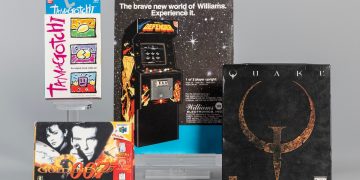Nintendo is in a prime position to unveil its next big thing—a new console likely to follow the wildly popular Switch—within the coming months. As they approach the end of their fiscal year in March 2025, and with fans eagerly awaiting news, launching a well-timed announcement could build significant momentum for the company. To get the most impact, selecting the right occasion and timing will be key. Revealing the Switch 2 early could give Nintendo a head start over its rivals as it transitions into the next generation of gaming.
The Game Awards, celebrating its tenth anniversary this December, presents a thrilling opportunity for such an announcement. It’s a globally recognized event that garners significant attention in the gaming world. As such, it would serve as an ideal platform for Nintendo to tease or even briefly introduce its next console. Using such a prestigious event to launch their next big thing could not only boost excitement for new hardware, but also for Nintendo’s slate of upcoming games.
With several Nintendo-associated games already nominated at The Game Awards, like Balatro for Game of the Year and Super Mario Party Jamboree for Best Family Game, Nintendo is already a strong talking point. Announcing a console during the event would certainly dominate discussions, ensuring Nintendo is the center of focus among gamers.
Timing this announcement at The Game Awards also makes sense from a marketing perspective. Instead of waiting until early next year, a December reveal could set off extended excitement, allowing follow-up announcements in Nintendo Direct presentations. This staggered unveiling plan could balance initial hype with a detailed look at the console’s features, specs, and game lineup throughout 2024.
Additionally, announcing the Switch’s successor sooner creates an opportunity to boost the perception of Nintendo’s software lineup. Games like the upcoming Xenoblade Chronicles X Definitive Edition could be positioned as launch window titles for the new system. The excitement generated from a hardware announcement could highlight these games in a market where competition is fierce.
Moreover, coupling a console announcement with promises of backward compatibility or enhancements for existing titles can bolster gamers’ confidence in upgrading. This strategy assures current Switch users that their investment retains relevance while hinting at future possibilities. Games like Neva, which has been recognized for its art direction and impact, showcase Nintendo’s blend of supporting indie projects and its renowned franchises—a harmony that should be highlighted as they move to their next system.
On the flip side, delaying the new console’s reveal could mean losing traction in an increasingly crowded market. Other big names like Sony and Microsoft are forging ahead with their mid-generation upgrades and innovations, while companies like Valve are breaking new ground in portable gaming. By announcing early, Nintendo can steers the conversation back to their upcoming hardware, assuring fans and investors of its commitment to delivering cutting-edge experiences.
An early reveal also allows Nintendo to address any potential concerns about supply chain logistics, potentially avoiding the shortages that have plagued previous launches amid the pandemic. By announcing their plans ahead of the pack, Nintendo positions itself as proactive and ready, easing possible consumer frustrations.
Ultimately, the follow-up to the Switch is not just about new hardware for Nintendo; it’s a chance to redefine its impact in the gaming world. By sharing its plans sooner rather than later, Nintendo can firmly establish itself as a leader, highlighting both its innovative technology and the creativity behind its software. Whether through a teaser trailer or a detailed road map, an early unveiling could help set the foundation for an exciting new era.










![[PS5] Review of Lost Records: Bloom and Rage – Tape 2 [PS5] Review of Lost Records: Bloom and Rage – Tape 2](https://www.intergamerz.com/wp-content/uploads/2025/04/Complimentary-Game-Lost-Records-Bloom-and-Rage-PS5-Giveaway-North-360x180.jpg)






















![[Industry Direct] PHI Studio & Agog Invite Applications for a Four-Week Residency for Immersive Artists [Industry Direct] PHI Studio & Agog Invite Applications for a Four-Week Residency for Immersive Artists](https://www.intergamerz.com/wp-content/uploads/2025/05/Industry-Direct-PHI-Studio-Agog-Invite-Applications-for-a-360x180.jpg)












